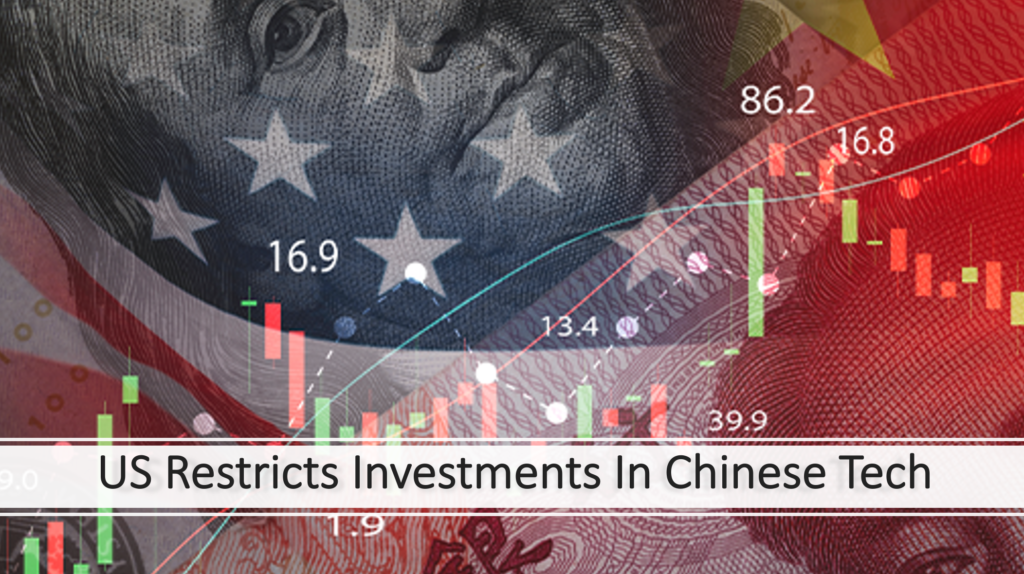US Aims to Restrict Investment in Chinese Chips, AI, and Quantum Computing

The U.S. government is considering new rules to limit investments and the transfer of technology to Chinese companies involved in advanced semiconductors, artificial intelligence (AI), and quantum computing, according to a U.S. Treasury official. The proposed measures aim to curb the flow of American investments that come with valuable expertise and know-how to specific sectors, particularly those related to China’s military. The Biden administration plans to ban investments in certain Chinese technology companies and increase scrutiny of others to address concerns about the transfer of capital and knowledge that could benefit Beijing’s military. Additionally, there are ongoing efforts to restrict the supply of U.S.-origin goods to Chinese telecommunications firm Huawei, but there is no draft rule on this issue yet. The U.S. government has been closely examining export requests to China and denied or took no action on about 26% of the applications in 2022 to prevent sales that could contribute to China’s militarization.
The implications and impacts of the Biden administration’s proposed actions to restrict investments and technology transfer to Chinese companies in advanced semiconductors, artificial intelligence, and quantum computing could have several effects, such as:
· Economic Impact: The restrictions could impact the economic relationship between the United States and China. Chinese companies heavily rely on foreign investments and technology to fuel their growth in these key sectors. Restricting such investments could slow down China’s technological advancements and economic development.
· Innovation and Collaboration: The restrictions may hinder global innovation and collaboration in these emerging technologies. Limiting the flow of investments and knowledge exchange between countries could impede progress and slow down advancements in areas where collaboration and exchange of ideas are crucial.
· Research and Development: The restrictions may encourage increased investment in US-based research and development (R&D) efforts in areas like quantum technology. This could lead to the growth of domestic capabilities, fostering innovation and pushing the boundaries of quantum computing and related fields.
· Technological Competition: The U.S. aims to maintain its technological edge and prevent China from catching up or surpassing it in critical areas like AI and quantum computing. By limiting China’s access to American investments and expertise, the U.S. hopes to safeguard its technological leadership and maintain a competitive advantage.
· Technological Leadership: By limiting investments in Chinese tech, the US aims to protect its technological leadership and maintain a competitive advantage in critical sectors like quantum computing. This strategy seeks to ensure that the US remains at the forefront of technological advancements and retains its position as a global innovation hub.
· International Collaboration: The action may impact international collaboration and partnerships in quantum technology. Restrictions on Chinese investments could limit collaboration between US and Chinese researchers, potentially affecting the exchange of ideas and impeding progress in the field.
· Global Competition: The move to curb investment in Chinese tech reflects the intensifying competition between the US and China in the realm of technology. It may contribute to a broader decoupling between the two countries’ tech sectors, potentially leading to the formation of separate technological spheres and global competition.
· National Security: The concern over the transfer of technology and know-how to Chinese companies is driven by national security considerations. There are worries that advancements made by Chinese companies could be leveraged for military purposes and pose a threat to U.S. interests. The restrictions aim to mitigate this risk and protect sensitive technologies from falling into the wrong hands.
· Geopolitical Tensions: The restrictions could further strain the already tense relationship between the U.S. and China. It may escalate trade tensions and contribute to a broader decoupling of the two economies. This could have implications not only for the U.S. and China but also for global trade and economic stability.
Although the proposed actions by the Biden administration are intended to address concerns related to national security and protect U.S. interests, they also carry potential economic, technological, and geopolitical consequences that need to be carefully managed and evaluated. Furthermore, it is important to note that the implications are complex, and the full effects will depend on how the restrictions are implemented and their long-term consequences. Balancing national security concerns, economic interests, and technological development will be key in navigating the impact on the US economy and quantum tech advancement.
Reference:
Freifeld, K. (2023, May 31). US seeks to curb investment in Chinese chips, AI, and quantum computing. Reuters. Retrieved from Reuters

Hamed Nazari
Hamed is an innovative and results-driven Chief Scientist with expertise in Quantum Science, Engineering, and AI. He has worked for leading tech companies in Silicon Valley and served as an Adjunct Professor at UC Berkeley and UCLA.
